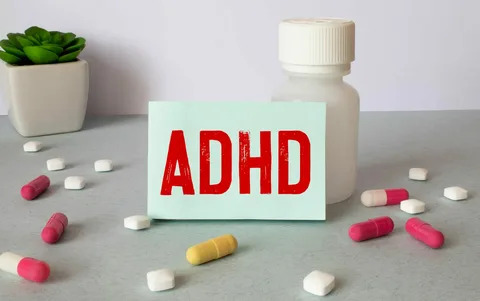A neurodevelopmental disorder known as Attention Deficit Hyperactivity Disorder (ADHD) is typified by impulsivity, hyperactivity, and inattention. It has an impact on many elements of daily life, such as social relationships, work productivity, and academic achievement, and it impacts both adults and children. Medication for ADHD, including both stimulants and non-stimulants, is frequently administered to treat symptoms and enhance functioning. The co-administration of ADHD medicine with alcohol, cannabis, or other drugs, however, brings up some crucial questions about possible hazards and practical approaches to handling these difficulties.
Knowing About ADHD Drugs
Amphetamines (like Adderall) and methylphenidate (like Ritalin) are stimulants used in ADHD treatment that act on the brain’s neurotransmitters, especially dopamine and norepinephrine. For those with ADHD, these drugs aid in controlling hyperactivity, impulse control, and focus. Different neurotransmitter systems are targeted by non-stimulant drugs like guanfacine (Intuniv) and atomoxetine (Strattera) to provide comparable therapeutic results.
The Connection Between Substance Abuse and ADHD Medication
The possibility of a connection between ADHD medication and drugs of abuse is one of the main worries. According to research, compared to the general population, people with ADHD may be more susceptible to substance use disorders. This heightened susceptibility is a result of impulsivity, sensation seeking, and issues with self-control, among other things. There are a few dynamics at work when ADHD medicine is added to this situation.
Dangers of ADHD Medication and Substance Abuse
Possibility for Misuse:
Because ADHD stimulant drugs raise dopamine levels, which can result in exhilarating or excessively energizing feelings, there is a chance that they will be abused. This misuse could include utilizing the drug in non-oral ways (such as snorting or injecting), taking larger amounts than recommended, or using it without a prescription.
Effects of Interactions:
Taking ADHD medicine along with alcohol or illegal drugs can have unanticipated and detrimental effects on the central nervous system. For instance, combining stimulants with depressants, such as alcohol, might obscure the sedative effects of alcohol and raise the possibility of an overindulgence in drinking or mishaps involving alcohol.
Impact on Treatment Effectiveness:
Drugs for ADHD may not work as well when used in conjunction with substance abuse, which can further hinder treatment results. It might be difficult to adequately control ADHD symptoms when chronic substance usage interferes with neurotransmitter activity and reduces the therapeutic advantages of medication.
Techniques for Reducing Risks
Education and Monitoring:
Medical professionals are essential in informing patients about the possible dangers of using ADHD medications and abusing drugs. This covers talking about how to take medications correctly, possible adverse effects, and how crucial it is to take prescriptions exactly as directed. Frequent follow-ups and monitoring can aid in the early detection of any usage or negative consequences.
Individualized Treatment strategies:
Since ADHD and drug use disorders often co-occur, it is crucial to customize treatment strategies to meet the needs of each patient. This can entail changing the dosage of prescribed drugs, taking into account non-stimulant substitutes for people with a history of substance dependence, or combining behavioral therapy with prescription drugs.
The Integrated Care Approach aims to improve treatment outcomes through collaborative care amongst mental health professionals, addiction specialists, and primary care doctors. Providing all-encompassing support and interventions, integrated care approaches simultaneously address substance use disorders and symptoms of ADHD.
Emotional dysregulation
Emotional dysregulation, trauma, and co-occurring mental health problems are examples of underlying causes that contribute to substance use that must be addressed. Counseling approaches that emphasize stress reduction, relapse avoidance, and coping skills might assist people in creating more effective coping mechanisms.
Support from Family and Social Networks:
Including family members and building a social support system can improve treatment compliance and rehabilitation results. Providing family members with information on ADHD and drug use issues, encouraging candid dialogue, and including them in treatment planning can all help to enhance overall results.
In summary,
A thorough understanding of how these factors interact is necessary to navigate the complexity of ADHD medication and substance use. Although using ADHD medication in addition to substances of abuse requires close observation, education, and specialized interventions, it is a useful strategy for treating symptoms. Healthcare professionals can assist patients with ADHD in achieving better treatment outcomes and enhancing their general quality of life by putting prevention methods into practice and addressing underlying problems

